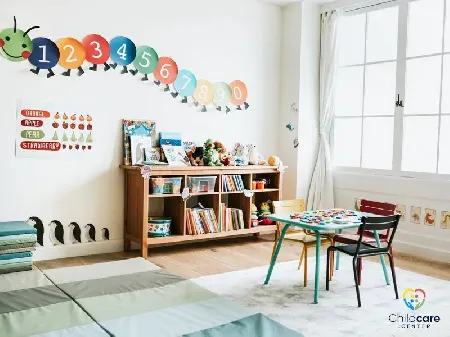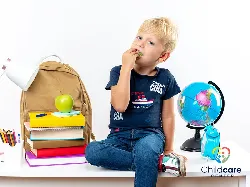How to Choose the Perfect Summer Camp
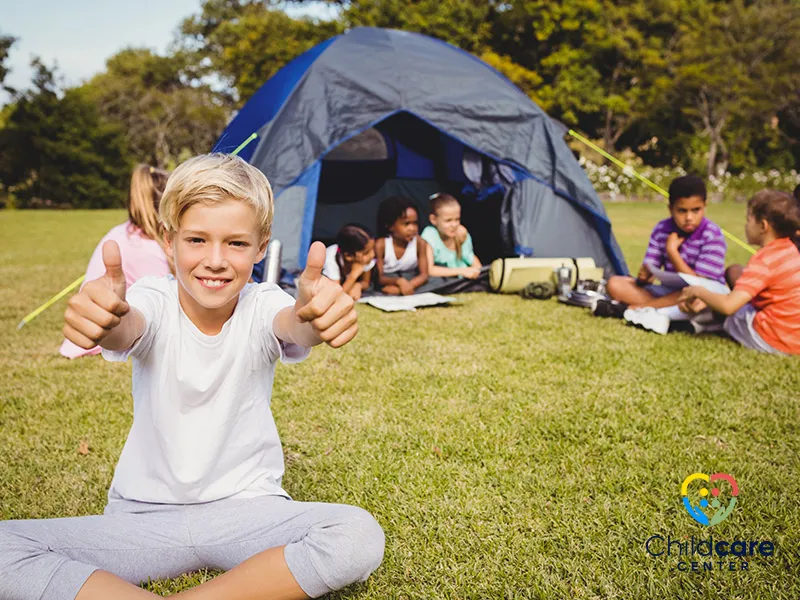
Summer camps provide a remarkable opportunity for children and teenagers to immerse themselves in a world of fun, growth, and exploration. When it comes to choosing the perfect summer camp, it's crucial to consider various factors that will contribute to an unforgettable experience for your child. From the diverse range of activities and programs offered to the camp's location and safety measures, making an informed decision will ensure that your child's summer is filled with adventure, learning, and lifelong memories.
Additionally, selecting the perfect summer camp involves considering the specific goals you have for your child. Whether you want to enhance their teamwork abilities, ignite their creativity, or nurture their love for nature, there are specialized camps tailored to various interests and aspirations. By aligning your child's goals with the camp's offerings, you can ensure that their summer camp experience becomes a stepping stone towards personal growth, skill development, and a deeper appreciation for the world around them.
How to find and choose the right camp
Finding and choosing the right summer camp for your child is an exciting yet important decision that requires careful consideration. With numerous options available, it can be overwhelming to navigate through the sea of possibilities.

However, by following a few key steps and considering essential factors, you can make an informed choice that ensures your child's summer camp experience is nothing short of exceptional. The first step in finding the right camp is to conduct thorough research. Start by exploring different types of camps that align with your child's interests and preferences. This could include sports camps, arts-focused camps, adventure camps, or academic camps. Look for camps that offer a diverse range of activities and programs that cater to your child's specific passions and desired areas of growth.
Additionally, delve into the camp's philosophy, values, and mission to ensure they align with your own beliefs and expectations. Reading online reviews, reaching out to other parents for recommendations, and visiting camp websites can provide valuable insights into the camp's reputation and the experiences of previous campers. By gathering as much information as possible, you can narrow down your options and focus on camps that best suit your child's needs.
What Should I Be Asking The Camp Director?
As a parent or guardian, it's essential to have open and effective communication with the camp director when considering a summer camp for your child. Asking the right questions can provide you with valuable insights and help you make an informed decision. The camp director is a valuable resource who can address your concerns, provide details about the camp's programs and policies, and ensure that your child's needs and expectations are met. Here are some questions you can ask the camp director:
What is the camp's philosophy and mission?
Understanding the camp's philosophy and mission is crucial to ensure it aligns with your family's values and expectations. Ask the camp director about the goals and principles that guide their programs. Are they focused on fostering personal growth, promoting inclusivity, or emphasizing skill development? Clarifying the camp's philosophy will help you determine if it is a good fit for your child and if it will provide the desired experience and values you seek.
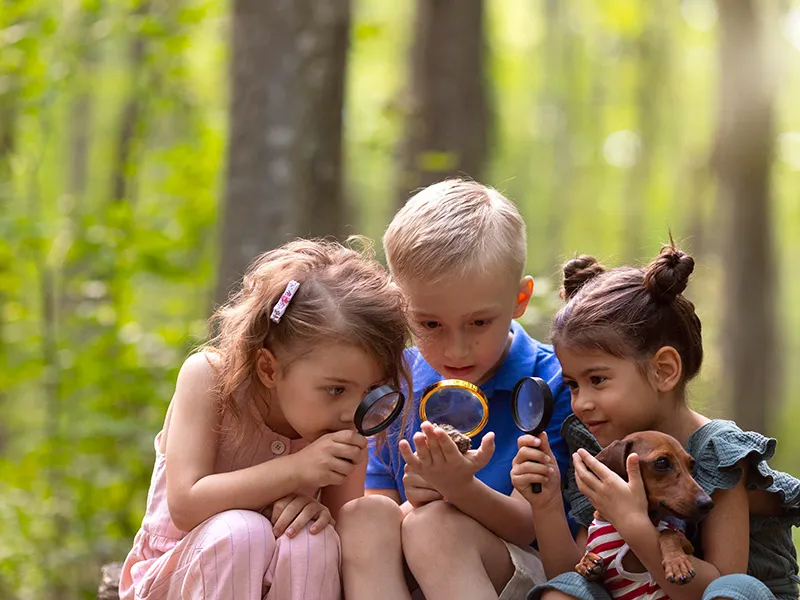
What safety measures are in place?
Ensuring the safety and well-being of your child is of utmost importance. Inquire about the camp's safety protocols and procedures. Ask about their staff-to-camper ratio, medical staff availability, emergency plans, and supervision policies. It's essential to understand how the camp handles situations such as allergies, medication administration, and any specific medical needs your child may have. A responsible camp director will be forthcoming with information and prioritize the safety and security of all campers.
What are the qualifications and experience of the staff?
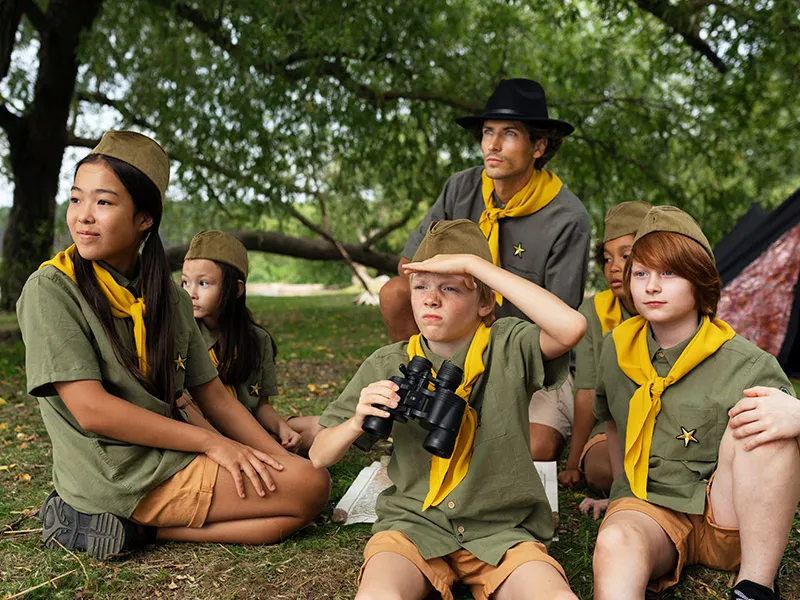
The quality and expertise of the camp staff greatly contribute to the campers' experience. Ask the camp director about the qualifications and experience of the counselors, instructors, and other staff members. Inquire about the staff's training programs, background checks, and certifications.
Understanding the level of expertise and dedication of the staff will give you peace of mind knowing that your child is in capable hands and will receive appropriate guidance and mentorship during their time at the camp.
How does the camp handle homesickness or emotional well-being?
Homesickness and emotional well-being are common concerns when sending a child to summer camp. Ask the camp director how they address these issues and support campers who may be experiencing homesickness or other emotional challenges. Inquire about their approach to fostering a positive and inclusive camp community, encouraging social connections, and providing emotional support to campers. Understanding the camp's strategies for addressing homesickness and promoting emotional well-being will help you gauge the level of care and attention given to campers' emotional needs.
What is the camper-to-staff ratio and how do you ensure individual attention?
The camper-to-staff ratio plays a significant role in the level of individual attention and supervision each camper receives. Ask the camp director about the specific ratio and how they ensure that campers receive personalized attention and support. Inquire about the strategies they have in place to foster meaningful connections between staff and campers. Understanding the camper-to-staff ratio and the camp's approach to individual attention will help you gauge the level of care and engagement your child will receive throughout their camp experience.

What is the daily schedule like, and how is free time balanced with structured activities?
Balancing structured activities with free time is crucial to provide campers with a well-rounded experience. Ask the camp director about the daily schedule and how they strike a balance between planned activities and unstructured time. Inquire about the variety of activities offered and how campers have the opportunity to explore their own interests. Understanding the daily routine and the balance between structured and unstructured time will help you determine if it aligns with your child's preferences and desired level of engagement.
How do you handle behavior management and promote a positive camp culture?
Ensuring a positive and inclusive camp culture is essential for the well-being and enjoyment of all campers.
Ask the camp director about their approach to behavior management and how they promote a supportive and respectful environment. Inquire about the strategies they have in place to address any behavioral challenges that may arise and how they foster positive relationships among campers.
Understanding the camp's approach to behavior management and promoting a positive camp culture will give you confidence in their ability to provide a safe and nurturing environment for your child.

What is the process for communication between parents and the camp?
Open communication between parents and the camp is vital for staying informed about your child's experience and addressing any concerns or questions that may arise. Ask the camp director about their communication policies and the channels through which you can stay connected with the camp. Inquire about the frequency of updates, parent visitation days, and the availability of camp staff for discussions or feedback. Understanding the communication process will help you stay engaged in your child's camp journey and ensure that you can address any important matters in a timely manner.

By asking these additional questions, you can gain a comprehensive understanding of the camp's individual attention, daily schedule, behavior management, communication policies, and overall camp culture.
This will provide you with the necessary information to make an informed decision and choose a summer camp that not only meets your child's interests and needs but also aligns with your expectations as a parent or guardian.
For more information about summer camps and to explore a wide range of options, visit the Canadian Camping Association.
If you're a daycare or camp provider looking to distinguish your offerings, "How to Make Your Summer Program Stand Out: Tips for Daycare and Camp Directors" is an invaluable resource. It offers expert strategies and actionable tips designed to elevate your program and captivate your audience.
Summer camp programs
Summer camp programs provide a diverse range of activities and experiences that cater to the interests and developmental needs of children and teenagers. These programs offer a unique opportunity for campers to learn new skills, forge meaningful connections, and create lasting memories.
From sports and outdoor adventures to arts and academic enrichment, summer camp programs are designed to foster personal growth, promote teamwork, and provide a fun-filled summer experience. In this article, we will explore the different types of summer camp programs available, highlighting their benefits and the wide array of opportunities they offer.
- Sports and Recreation Programs:
Sports and recreation programs are popular choices for summer camps, offering campers the chance to engage in physical activities, develop athletic skills, and cultivate a love for sports. These programs often include a variety of sports such as soccer, basketball, swimming, tennis, or gymnastics. Through coaching, practice sessions, and friendly competitions, campers not only improve their athletic abilities but also learn valuable life skills such as teamwork, discipline, and sportsmanship.
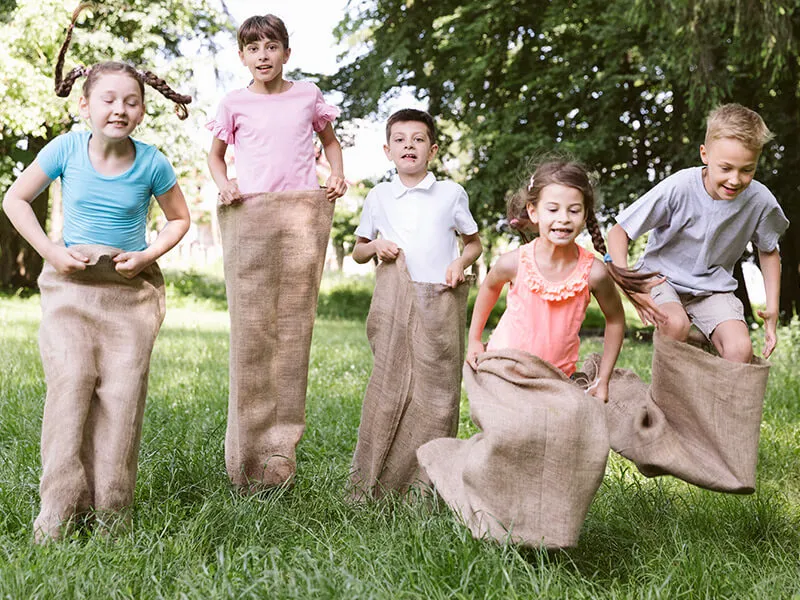
- Arts and Creative Programs:

- Outdoor Adventure and Nature Programs:
- Academic Enrichment Programs:
- Specialty Programs:
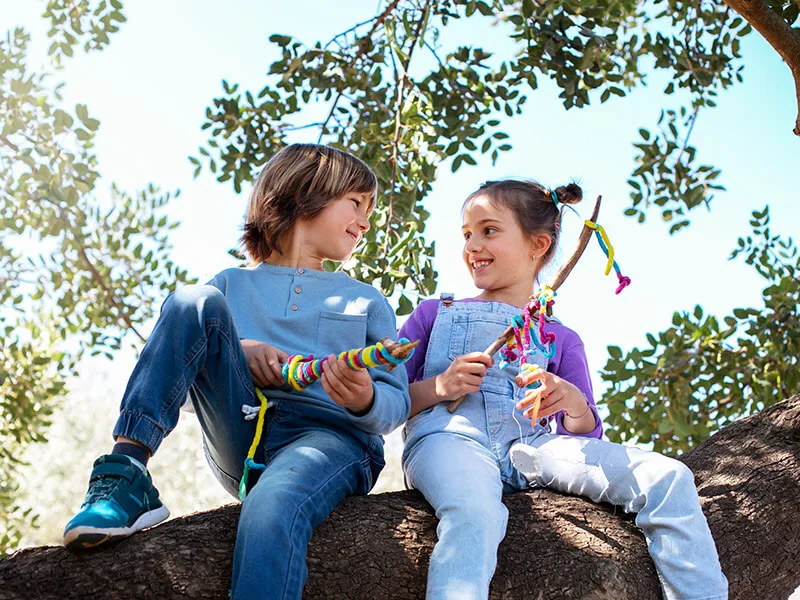
- Special Needs and Inclusive Programs:
Special needs and inclusive programs aim to provide a supportive and inclusive camp experience for children and teenagers with diverse abilities and needs. These programs offer tailored activities, specialized staff, and appropriate accommodations to ensure that all campers can fully participate and enjoy the camp experience. Inclusive programs foster an environment of acceptance, understanding, and friendship, promoting a sense of belonging for campers of all abilities.
For parents of children with autism, finding the right daycare or camp that understands and caters to their child's unique needs is crucial. Our resource, "5 Essential Keys to Finding the Right Daycare for a Child With Autism," offers guidance on what to look for in a program, ensuring that your child not only has access to an inclusive environment but also receives the support they need to thrive.
Summer camp programs are designed to provide a comprehensive and enriching experience for campers, offering a wide range of activities and opportunities for personal growth and development. By choosing a summer camp program that aligns with a camper's interests, talents, and goals, parents and guardians can provide a transformative summer experience that will leave a lasting impact on their child's life.
Is summer camp worth the investment?

Summer camp is undoubtedly worth the investment due to the multitude of benefits it provides for children and teenagers. Firstly, it offers a unique opportunity for personal growth and independence. By being away from home and navigating new experiences, campers develop essential life skills such as resilience, adaptability, and self-confidence.
They learn to make decisions, solve problems, and overcome challenges on their own, fostering a sense of self-reliance and empowerment.
Secondly, summer camps play a pivotal role in social development and relationship building. Campers interact with peers from diverse backgrounds, fostering a sense of community and belonging. They learn to communicate effectively, work collaboratively, and develop empathy and teamwork skills. The friendships formed at summer camp often extend beyond the camp experience, providing a supportive network and lifelong connections.
Moreover, summer camps expose children and teenagers to a wide range of experiences and activities that they may not have access to in their daily lives. They have the opportunity to try new sports, explore nature, engage in creative arts, and participate in academic enrichment programs. These experiences broaden their horizons, ignite new passions, and instill a love for lifelong learning and exploration.

Additionally, summer camps focus on skill development and personal achievement. Whether it's improving athletic abilities, refining artistic techniques, or acquiring new academic knowledge, campers gain valuable skills that extend beyond the camp environment. They set personal goals, track their progress, and experience the satisfaction of personal achievement, boosting their self-esteem and motivation.
Lastly, summer camp experiences create lasting memories that campers cherish for a lifetime. The adventures, friendships, and shared experiences become cherished stories and a source of nostalgia. Furthermore, summer camps often celebrate diversity and promote cultural enrichment by bringing together campers from different backgrounds, fostering an appreciation for different perspectives and cultures.
When Are Kid Ready for Camp?
Determining when a child is ready for camp is a decision that depends on various factors, including the child's age, maturity level, and individual needs. Generally, children start attending day camps around the age of five or six, while overnight or residential camps may be more suitable for older children and teenagers. However, readiness for camp extends beyond chronological age and requires considering the child's emotional and social development.
It's important to assess a child's ability to handle separation from parents or guardians, adapt to new environments, and follow instructions from camp staff. Children who exhibit a sense of independence, can express their needs, and demonstrate a level of confidence and resilience tend to be more ready for the camp experience. Additionally, a child's interest in the camp's activities and willingness to participate can indicate their readiness and enthusiasm for the camp environment.

Parents and guardians should also consider the child's social skills and ability to interact with peers. Camps involve group activities, teamwork, and shared living spaces, so it's important that a child can navigate these social dynamics effectively. If a child shows an interest in making new friends, has had positive experiences in group settings, and displays a degree of social maturity, they may be ready for the camp experience.
Nurture your child's independence through an enriching summer camp experience. Discover camps that focus on empowering kids to take on new challenges and develop self-reliance. For more information and helpful tips on fostering independence in your child, visit "Little Things You Can Do Every Day to Make Your Child More Independent"
Ultimately, the decision of when a child is ready for camp should be made on an individual basis, taking into account the child's unique characteristics, interests, and readiness indicators. Open communication between parents, guardians, and camp staff can help assess readiness and ensure that the camp experience is a positive and enriching one for the child.
How to Convince Your Child to Enroll in a Summer Camp
Convincing your child to enroll in a summer camp can be an exciting opportunity to promote personal growth, foster new friendships, and create lasting memories. To persuade your child to embark on this adventure, it's important to approach the conversation with enthusiasm and emphasize the numerous benefits of attending a summer camp. Highlight the chance to explore new interests, participate in fun activities, and develop important life skills.
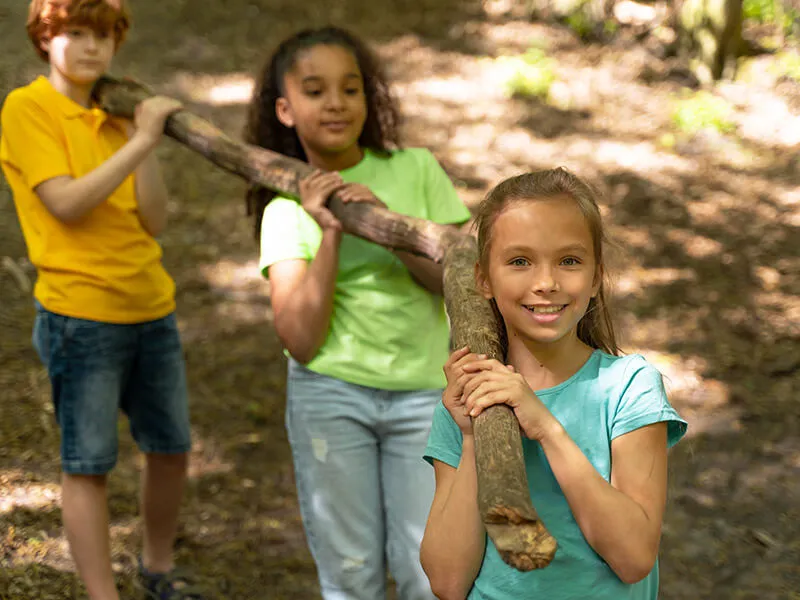
Discuss the opportunities for adventure, such as outdoor exploration, sports, arts, or science experiments, which may align with their individual passions.
Emphasize the chance to make new friends and build lasting relationships, assuring them that they will have the opportunity to connect with other children who share similar interests. Address any concerns or fears your child may have, assuring them that camp staff are trained professionals who prioritize safety and well-being.
Lastly, involve your child in the decision-making process, allowing them to have a say in choosing a camp that aligns with their preferences and interests. By highlighting the exciting experiences, social connections, and personal growth opportunities, you can help your child understand the value of enrolling in a summer camp.
Empower Your Child for an Unforgettable Summer Camp Experience
Empowering your child for an unforgettable summer camp experience is a wonderful way to instill confidence, independence, and a sense of adventure. Start by involving your child in the decision-making process, allowing them to choose a camp that aligns with their interests and passions. Encourage open communication, where they can express any concerns or fears they may have about attending camp.By listening attentively and addressing their worries, you can help alleviate any anxieties and build their confidence. Prior to camp, involve your child in the preparation process, such as packing their belongings and discussing what to expect.
Teach them important skills like self-care, problem-solving, and decision-making, empowering them to navigate new experiences with resilience and autonomy. Encourage your child to embrace new friendships and engage in camp activities, reminding them that stepping outside their comfort zone can lead to incredible personal growth and unforgettable memories. By empowering your child with confidence, independence, and a positive mindset, you are setting the stage for an unforgettable summer camp experience that will shape them in remarkable ways.
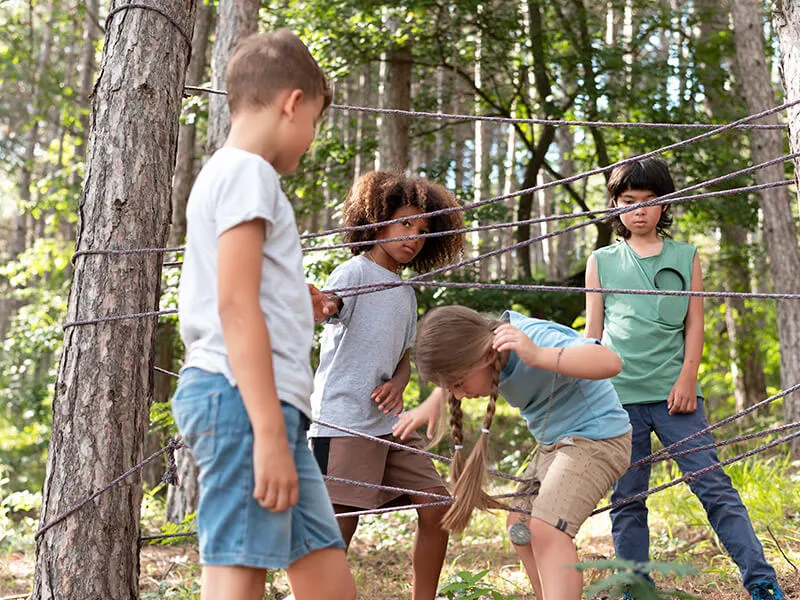
Remember that, when it comes to keeping your kids engaged and entertained at home during the summer, it can be a challenge. However, there are effective strategies that can help make the experience enjoyable for everyone involved. To learn more about dealing with kids at home during the summer, check out "How Do I Deal with My Kids at Home in the Summer?"
Conclusion
In conclusion, choosing the perfect summer camp for your child is a decision that requires careful consideration and research. By taking into account factors such as the camp's activities, location, safety measures, and reputation, you can ensure that your child has an unforgettable and enriching experience. It is crucial to consider your child's interests, preferences, and developmental needs when selecting a camp that aligns with their individuality. Additionally, involving your child in the decision-making process and considering their input can enhance their enthusiasm and sense of ownership over the camp experience.
Ultimately, the perfect summer camp will provide a balance of fun, learning, personal growth, and social interaction, creating a platform for lifelong memories and valuable skills. With thoughtful planning and thorough evaluation, you can choose the perfect summer camp that sets the stage for a summer full of adventure, growth, and lifelong friendships.





